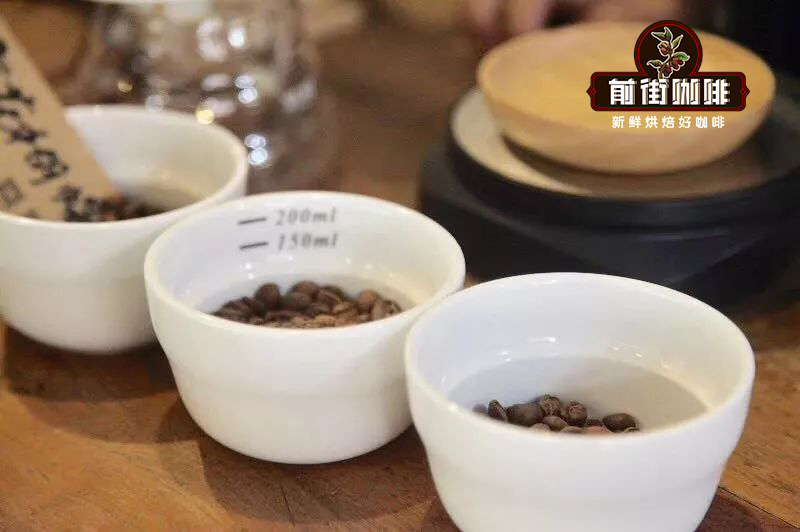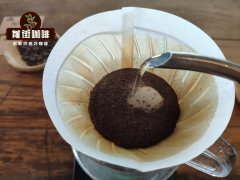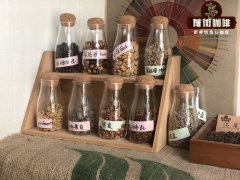How does coffee roasting affect the alcohol thickness of coffee how should coffee beans be roasted

A friend of mine talked with me all day about the taste and mellow thickness of coffee. In his eyes, everyone who drinks coffee can easily tell whether the coffee is mellow or not. I disagree with this. As practitioners of the boutique coffee industry, we always want to lead consumers to taste aromas and tastes that they do not know. It is easy for us to distinguish the subtle citrus aroma of coffee, the aroma of a particular variety of flowers, or to identify a whole new flavor. But for the average consumer, these complex adjectives may have no meaning at all. Without a detailed explanation, no one can really understand the quality of coffee. So, here today, I will use an actual case to explain in detail what is the alcohol thickness (Body) of coffee.
Conceptually, alcohol thickness refers to the thick feeling of coffee, the texture and the physical feeling of the mouth when carrying coffee. In the definition of alcohol thickness by the American Fine Coffee Association (SCAA), we can know that the alcohol thickness of coffee is determined by the quality of raw beans and affected by the processing process. However, for coffee roasters, we think that the roasting process and methods also have a great impact on the thickness of caffeine.

In my new book, changing the flavor map of coffee: a coffee roaster's monologue (Modulating the Flavor Profile of Coffee: One Roaster's Manifesto), I present my personal view on the thickness of caffeine. In my opinion, the alcohol thickness of coffee depends on the Maillard reaction (Maillard reaction) during roasting. During the reaction, coffee forms a substance called protein melanin. In the book Italian espresso: the Science of quality (Espresso: The Science of Quality), the author discusses the effect of protein melanin on the thickness of caffeine. The author found that the molecular weight will affect the viscosity of the liquid, that is, the greater the molecular weight, the higher the viscosity of the liquid. Therefore, the protein melanin produced during Maillard reaction will increase the overall weight of coffee molecules, thus increasing the viscosity of coffee. The higher the viscosity, the higher the alcohol thickness of the coffee.
From this, we can know that by adjusting the baking curve, we can control the Maillard reaction in the roasting process, thus controlling the alcohol thickness of the coffee. Once the coffee changes from green to yellow in the roaster, the Maillard reaction begins and continues until you stop baking and pour the beans into the cooling plate. If the cooling rate is slow, the Maillard reaction will continue for some time.
Through the blind sample, I found that the longer the Maillard reaction duration, the higher the alcohol thickness of the coffee; conversely, the shorter the Maillard reaction time, the lower the alcohol thickness of the coffee.
Of course, if you want to control Maillard reaction, you need to consider a lot of factors, and the requirements for control methods are extremely strict. I have explained in detail in my book how to control the Maillard response. Here, I would like to highlight the importance of adjusting the thickness of caffeine by controlling the Maillard reaction.

First of all, it is extremely important for coffee roasters to be able to adjust the thickness of caffeine, which gives roasters unlimited room for imagination. In other words, the alcohol thickness of coffee has become an important tool for us to regulate the overall quality of coffee. As long as you adjust the baking curve properly, you can get the ideal mellow feeling. Of course, we also need to note that the alcohol thickness of each kind of coffee has its critical value, and the roaster can only adjust it within this range. Therefore, the variety of coffee beans is still the key to determine the mellow feeling of coffee, and all we can do is to play freely within an adjustable range.
Secondly, people should pay enough attention to the alcohol thickness of coffee. No matter in SCAA, Q-Grade or Cup of Excellence, alcohol thickness is a very important scoring standard. These scoring tables are an important basis for measuring the quality of raw coffee beans, and it is these scores that determine the price of coffee. So as a roaster, you should always keep in mind that although you can adjust the mellow thickness of coffee through your skills, be sure to record the data in detail to provide a reference for coffee drinkers. Remember, even if you have all kinds of skills, you can't lose your basic respect for coffee.
Here, I would like to introduce to you my experimental method. During the baking sampling, I will record the time when the coffee beans start to change color and the time when the baking ends, so as to calculate the total time of Maillard reaction. Then I will judge the alcohol thickness of the coffee by the blind taste, and then adjust the setting parameters for the next baking according to the results of the blind taste. If the experiment is unsuccessful, you must start roasting coffee again.
When baking, you need to invest 100% of your experience to control the duration of Maillard's reaction. Of course, controlling Maillard reaction is just one of many ways to adjust the overall taste balance and alcohol thickness of coffee. In order to pursue the higher quality of coffee, we must keep learning, devote energy, and pay attention to the smallest differences between each batch of coffee. Keep in mind that any minor changes in the roasting process will affect the final quality and taste of the coffee.
Important Notice :
前街咖啡 FrontStreet Coffee has moved to new addredd:
FrontStreet Coffee Address: 315,Donghua East Road,GuangZhou
Tel:020 38364473
- Prev

How to define boutique coffee? What's the difference between boutique coffee and individual coffee?
In 1974, Erna Knutsen first used the word professional to refer to coffee in the Tea and Coffee Magazine. She uses this word to describe coffee with high quality and unique flavor produced in a microclimate. Nowadays, however, the word "professional" is everywhere in the industry. It was mercilessly used in packaging and signage and thrown away by baristas and bakers. Since the word entered the general form
- Next

Description of coffee brewing flavor characteristics of Yejia Fico snow map, high scaffolding, sun-dried coffee beans, snow map
Professional coffee knowledge exchange more coffee bean information Please pay attention to the coffee workshop (Wechat official account cafe_style) Preface since the introduction of washing treatment in 1972 because of the fresh and refined flavor of the washed coffee, it has been loved by everyone. A coffee merchant saw that the water washing treatment was about to bury the traditional sun treatment, so he launched it in 2006.
Related
- Beginners will see the "Coffee pull flower" guide!
- What is the difference between ice blog purified milk and ordinary milk coffee?
- Why is the Philippines the largest producer of crops in Liberia?
- For coffee extraction, should the fine powder be retained?
- How does extracted espresso fill pressed powder? How much strength does it take to press the powder?
- How to make jasmine cold extract coffee? Is the jasmine + latte good?
- Will this little toy really make the coffee taste better? How does Lily Drip affect coffee extraction?
- Will the action of slapping the filter cup also affect coffee extraction?
- What's the difference between powder-to-water ratio and powder-to-liquid ratio?
- What is the Ethiopian local species? What does it have to do with Heirloom native species?

